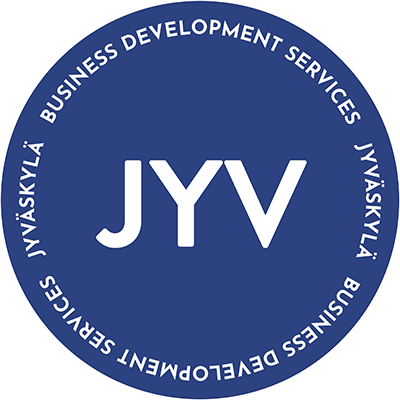Central Finland's NATO network strengths in Arctic performance expertise

The NATO value network study commissioned by the City of Jyväskylä's Business Services in early 2024 sought to identify the strengths of Jyväskylä and Central Finland to boost regional growth. Based on the study conducted by Huld Oy, themes linked to Arctic performance emerged as clear regional strengths, in which the region has excellence in both business and research. The research will feed into the development of the Business Value Network, which will start in the spring.
The aim of the NATO value network survey was to find an approach to the business opportunities that NATO brings to Central Finland companies, based on Central Finland's expertise and strengths. Based on the study, value networking will be launched between companies and other participants in the region to increase business opportunities and open up NATO procurement channels and networks for SMEs in Central Finland. The study identified two themes as strengths of the region: military capability and crisis resilience in the Arctic.
These themes are strongly linked to Finland's northern location, the Jyväskylä region's strong expertise in human physiology both in the business sector and in cutting-edge research, and the region's winter conditions compared to more southern university cities.
- Jyväskylä has a strong concentration of defence forces, especially the air force. The region's attractiveness and expertise are also enhanced by the Defence Forces Command and Control Systems Centre as well as a strong centre of excellence in information technology and cyber security. We also have several strong defence industry players in Central Finland that could act as value network accelerators," comments Ari Tolonen, Director of Business and Employment Services at the City of Jyväskylä.
Under the theme of soldier performance, human physiology, personal tools and equipment, human-machine cooperation and usability and design are further elaborated. Under the theme of crisis resilience, crisis communication, winter maintenance, the circular economy and new fuels from a security of supply perspective were included. Also identified under this theme were information, cyber and overall security, the performance of tools and equipment in Arctic conditions and dual-use from the perspective of building crisis-time resilience.
 A soldier flying a drone. Photo: Nordic Drones Oy
A soldier flying a drone. Photo: Nordic Drones Oy
For the study, eight industry players from Central Finland and a total of about twenty companies and organisations, either in the defence sector or as part of industry networks, were interviewed in depth to obtain background information on the subject.
The NATO value network is widely open to businesses in the region
The network aims to involve a wide range of businesses in the region in the development work. It will highlight the opportunities that NATO brings, particularly in those business sectors that are not perceived as traditional defence industry players. The study highlighted examples such as Kiteen Suksi, Savotta and Cargofit, which have already been able to offer products and services in their respective regions that meet the specific needs of the niche defence sector, for example in terms of performance.
- The needs of NATO countries are vast, and there is a demand for products and solutions that sound very basic. Not everything has to be designed for the defence industry as a matter of course. One of the objectives is to encourage companies to consider the potential of the defence industry in their own business, and with this in mind, a key objective of the value networking work is to share information about the sector and attract companies to participate in defence industry projects," says Kimmo Kaario of Huld Oy, which carried out the survey.
The study found that the City of Jyväskylä has a role to play in building business networks and identifying new business opportunities for SMEs. The laws and operations of the defence sector require specific knowledge and understanding of the sector, which value networking aims to bring to a wider range of businesses.
Defence procurement is often a lengthy process, with various regulatory requirements. To address these specificities, the city is working with experts to help SMEs in the region through value networks. The value network can give an individual SME a "broader shoulder" and the support of partners and public actors in providing products and services to a challenging industry.
- The main themes that emerged from the study support regional strengths and the urban strategy and are in line with the development priorities of the province. At the same time, we are not in direct competition with other regions or existing Nato centres of excellence. The selected themes are examples of how the knowledge and work that is concentrated in the region can be used and deepened in a new sector. At best, this will create new skills and business in already strong priority areas," says Timo Harju from the City of Jyväskylä's Business Services.
Read more about the report (in Finnish).
Business, do you want to participate in value networking? You can register your interest here.
The Nato Value Network Study is part of the City of Jyväskylä's ecosystem work (Jyväskylä Growth and Sustainable Urban Development project) co-funded by the European Union. Our ecosystem work is supported by funding from the Regional Council of Central Finland (ERDF funding) and the Ministry of Economic Affairs and Employment's ecosystem agreement for the period 2021-2027, together with the region's universities and other developers.



